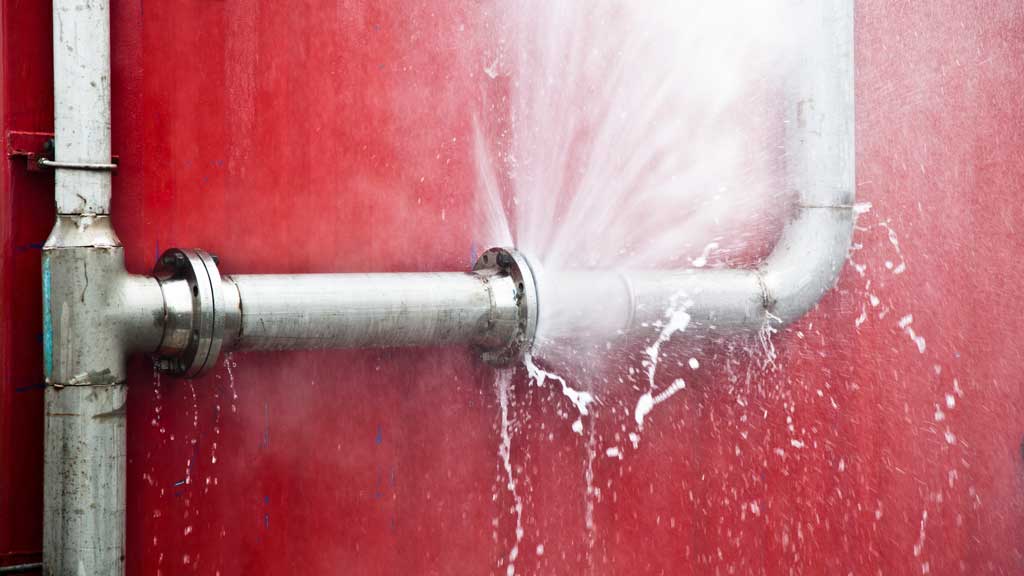Preventing a Burst Pipe: Tips for Protecting Your Plumbing During Winter
Preventing a Burst Pipe: Tips for Protecting Your Plumbing During Winter
Blog Article
Avoiding Ruptured Water Lines: Essential Tips to Protect Your Plumbing
Avoiding ruptured pipelines is a critical issue for homeowners, especially throughout chillier months when the risk of freezing is increased. Applying tactical actions such as correct insulation, regular assessments, and preserving regular interior temperatures can substantially minimize the possibility of pipe failure.
Understand Pipeline Vulnerabilities
Understanding pipeline susceptabilities is important for effective pipes upkeep and protecting against pricey damage. Numerous elements contribute to the vulnerability of pipelines to bursts, consisting of material composition, age, and ecological problems. Older pipes, specifically those made from galvanized steel or polybutylene, usually break down over time, causing raised threat of ruptures and leakages.
Temperature changes can additionally considerably influence pipe integrity. In cooler climates, water caught in pipelines can freeze, broadening and applying stress on the pipeline wall surfaces, which may eventually result in a ruptured. Furthermore, high water stress can stress pipelines, particularly at bends and joints, heightening the probability of failure.

Insulate Water Lines Effectively
Correct insulation of pipes is essential for avoiding freezing and succeeding bursts during winter (burst pipe). Insulating your pipes system effectively safeguards versus temperature level goes down that can bring about expensive damage. Begin by recognizing at risk areas where pipelines are subjected to outdoor temperatures, such as basements, attic rooms, and outside wall surfaces
Use foam pipe insulation sleeves or cover insulation tape around these areas to supply a protective barrier. Make sure that all areas of the pipelines, especially those with restricted heat exposure, get adequate insulation. Pay unique interest to installations and joints, as these are a lot more prone to freezing.
When shielding, it's vital to pick materials that meet local building regulations and are ideal for the specific setting. Fiberglass insulation is often recommended for its thermal resistance properties. Furthermore, consider making use of heat wires or tape in severe conditions, which can be connected in to provide additional warmth
Regularly evaluate protected pipelines for any signs of wear or damage, as endangered insulation can lessen its efficiency. By taking these proactive procedures, you considerably lower the danger of pipe bursts, making certain a trustworthy plumbing system throughout the winter months.
Maintain Consistent Temperature
A secure indoor temperature level is crucial for preventing burst pipes throughout the frigid months. When temperature levels decline, water within pipelines can ice up, producing and broadening pressure that might eventually create the pipelines to burst.Using a programmable thermostat can aid take care of indoor temperatures effectively, ensuring that spaces with plumbing stay cozy even when the residence is vacant.
On top of that, it is prudent to allow taps to drip somewhat during severe chilly spells. This minor circulation of water can stop cold by easing pressure within the pipelines. click to find out more During specifically severe climate events, think about briefly suspending any nighttime problems on your thermostat to keep a constant cozy environment. By carrying out these strategies, home owners can significantly lower the risk of pipe ruptureds and safeguard their plumbing systems versus the harsh wintertime components.
Regularly Examine Plumbing
Normal inspections of pipes systems are crucial for preventing ruptured pipes and maintaining overall home integrity. Throughout these examinations, it is vital to take a look at visible pipes for indicators of deterioration, leaks, or put on.
Furthermore, examining connections and joints is vital, as these points are frequently at risk to leakages. Homeowners must additionally assess water stress levels, as extreme stress can strain the pipes system and boost the threat of pipeline bursts.
Take into consideration scheduling specialist plumbing examinations a minimum of once a year, especially before wintertime, to ensure your system is planned for colder temperature levels. Normal evaluations not just assist in recognizing instant concerns yet also foster lasting maintenance techniques that can boost the lifespan of your pipes system. By being positive in your technique, you can guard your home against the expensive and turbulent repercussions of ruptured pipes. Prioritizing pipes inspections is a financial investment in your house's wellness and security.
Know Emergency Situation Treatments
Understanding emergency treatments is crucial for every house owner, specifically after performing routine plumbing inspections. Being prepared for a plumbing emergency situation can significantly mitigate damages and save costs.
Next, maintain essential devices helpful. A plumbing emergency my sources kit need to consist of a wrench, plunger, and towels, as well as a flashlight and a bucket for tiny leaks. In addition, think about having the call info for a relied on plumbing professional easily available, ought to the scenario intensify past your control.
If you find a leak or burst pipeline, right away switch off the water and inform your plumbing technician. Document the damage with photographs for insurance purposes. Be aware of the indicators of prospective pipes problems, such as uncommon water stress changes or damp areas on wall surfaces
Eventually, proactive understanding and swift activity are vital in managing plumbing emergency situations, ensuring your home continues to be protected and decreasing potential damage.

Verdict
Finally, protecting against ruptured pipes requires a multifaceted approach that consists of understanding pipe vulnerabilities, proper insulation, keeping regular indoor temperature levels, normal assessments, and understanding of emergency treatments. By executing these crucial approaches, the danger of plumbing failures can be considerably reduced, consequently guaranteeing the long life and effectiveness of the pipes system. Proactive measures not only safeguard against possible damages but additionally add to total water conservation and the defense of home.
In cooler climates, water caught in pipelines can freeze, exerting and broadening stress on the pipeline wall surfaces, which may eventually lead to a ruptured. When temperature levels decrease, water within pipes can ice up, expanding and creating stress that may ultimately trigger the pipelines to burst. By executing these methods, house owners can significantly decrease the danger of pipeline ruptureds and secure their pipes systems versus the harsh winter season elements.

Report this page